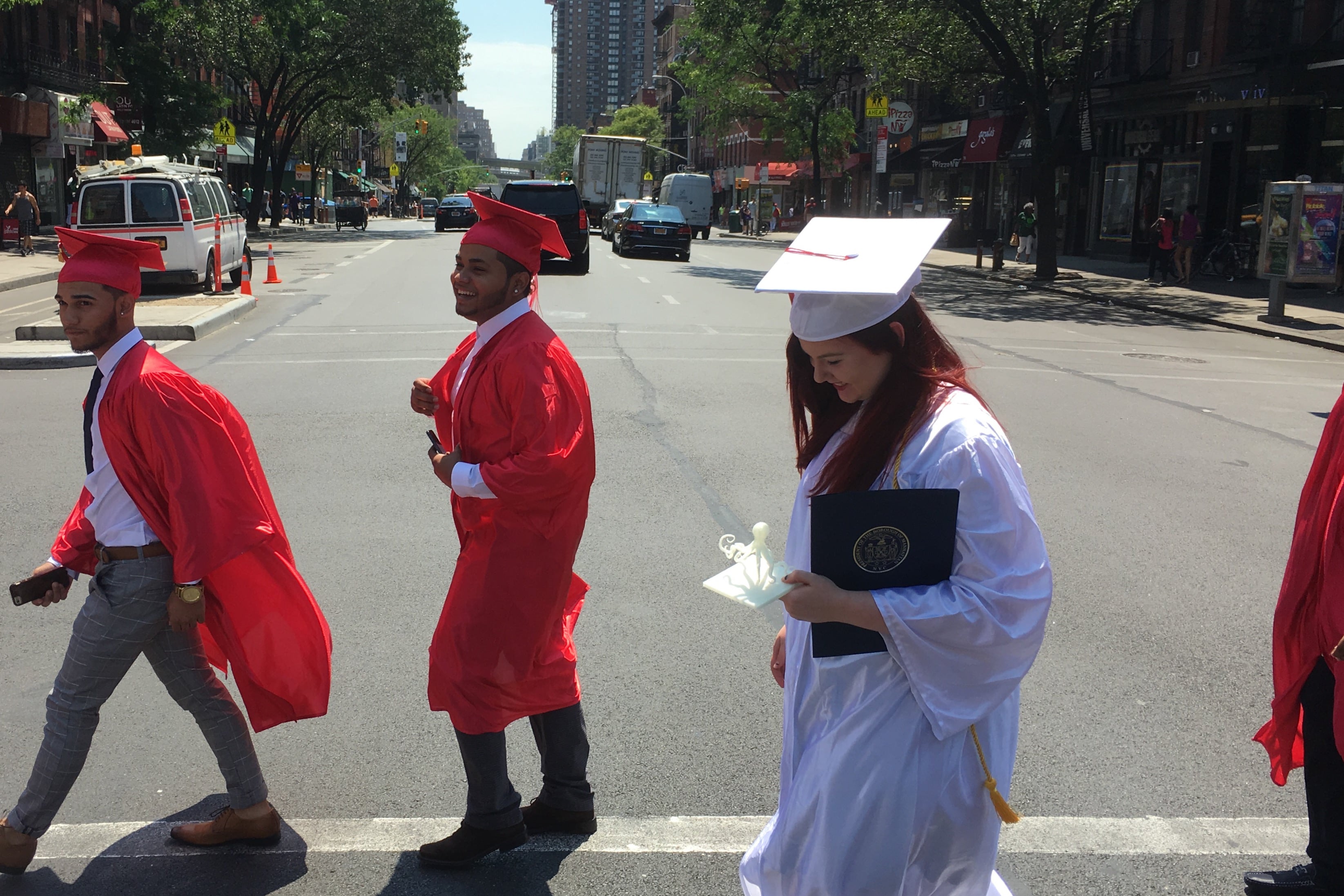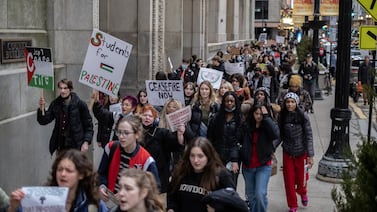After backlash from principals and nonprofit leaders, the city’s education department has backed off a plan that would have overhauled the way roughly one-third of public high schools are supervised.
At issue are 164 schools in the city’s “Affinity” network, which include schools that exclusively serve new immigrants, deploy alternate assessments in lieu of state exit exams, or have a career focus. City officials were considering a plan to break up the network, reassign the superintendents who oversee it, and disband the central office that provides logistical support and training for Affinity schools.
The education department has decided to leave the network largely intact after parents, school leaders, and partner organizations expressed alarm over the plan, which would have changed the schools’ supervision structure just as they’re scrambling to reopen their doors after buildings were shut in March due to the coronavirus.
The Affinity schools will be supervised by the same set of superintendents, a major sticking point among those opposed to the reorganization.
“Your voices mattered — and they were heard!” wrote the Affinity office’s executive director, Carolyne Quintana, in a memo sent to members of the network and obtained by Chalkbeat. Schools “may continue to do important and challenging work with the guidance of superintendents they know and trust.”
However, the citywide office that had provided support for Affinity schools will be closed and the schools will be reassigned to an existing network of borough-based support offices. Quintana’s memo indicated those staff members may be allowed to move to the borough offices and keep working with the same schools, though it’s unclear if that will happen in every case.
Each Affinity school is supported by nonprofit or university partners, such as New Visions, Outward Bound, Urban Assembly, and CUNY, giving groups of schools the ability to collaborate on curriculum and teacher training, and to share best practices — relationships that will go unchanged for now.
“We’re grateful that our structure was largely preserved,” said Kristin Kearns-Jordan, the CEO of Urban Assembly, which partners with 21 Affinity schools, many of which have career-oriented themes, such as criminal justice or emergency management. “We are hopeful that [the city] will maintain our contracts,” given the city’s bleak financial picture and uncertainty about whether the federal government will fill the gap, she added.
It’s not entirely clear what the education department hopes to accomplish by dissolving the Affinity support office, whose staff helps schools with budgeting, human resources, special education compliance, and more.
Nathaniel Styer, an education department spokesperson, previously suggested that changes could be a cost-saving measure, but did not answer questions about how much money dissolving Affinity’s support office will save, whether any staff will be laid off, or when the changes will formally take place.
“We are answering the call of our valued Affinity school leaders and partner organizations for consistent supervision and support as they provide students with a high-quality education during the critical academic school year ahead,” Styer wrote in an email.
The Affinity network is a vestige of a support system that was conceived under former Mayor Michael Bloomberg; schools were given the option of joining one of dozens of support networks, some of which were affiliated with nonprofits and universities.
But under Mayor Bill de Blasio, those networks were dissolved and local superintendents were given new authority to directly supervise schools. The Affinity network escaped elimination during that reorganization, retaining a separate network of support with their own superintendents, partly thanks to pushback from politically connected nonprofit leaders.
One Affinity school principal, who spoke on condition of anonymity, said the department made the right decision to avoid disbanding the network.
“It’s a win-win,” the principal said. “The DOE gets to say that Affinity has been abolished and no longer exists, but we get to stay with the people who have been helping us in this crisis, which is our superintendent’s team.”








